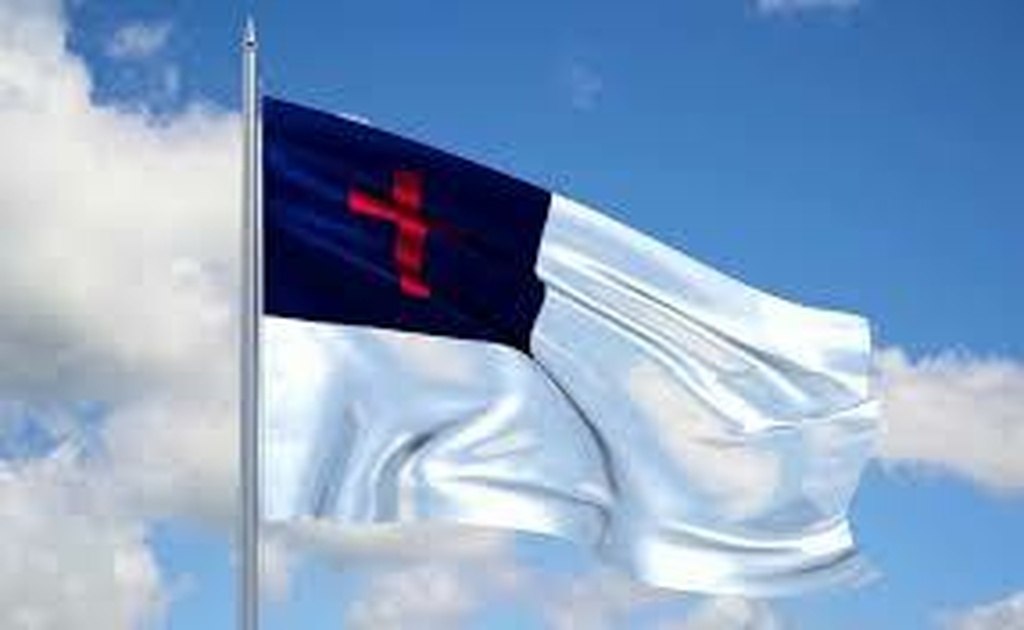
A Holy Nation
The emphasis in the idea of a holy nation is on God’s grace, and then on our gratitude. Disobedience begins with the illusion that God’s covenant law is a restraint upon a people’s freedom rather than the ground of it. To see God’s law as a limitation on us rather than our empowerment is the beginning of apostasy.

- R. J. Rushdoony
The covenant people must establish a holy, covenant nation: Exodus 19:6; 22:31; 23:24f.; Leviticus 19:2; Deuteronomy 7:6; 14:2, 21; 26:18-19. In all their ways, God’s people must manifest their holiness. Their every activity, to the very food they eat, must show that they have an unrestricted dedication and devotion to God and His law-word.
Here as elsewhere God gives no punitive power to man. Just as violation of the dietary laws brings its own penalties upon us, and just as a disregard for God’s law limiting the extent of debt brings judgment upon us, so too a people’s refusal to be a holy nation is its own punishment.
To be a holy nation means that God’s purposes prevail over personal and national wishes. In Exodus 19:6, this means being “a nation of priests.” A priest dedicates himself and all that he has to God’s service. A nation must likewise be a holy nation.
Our holiness is apparent in the details of life. Thus, our diet must not include an animal, even if a clean one, that is torn by wild animals. Such meat must be given to the dogs (Ex. 22:31).
This also means no participation in pagan worship. Paganism cannot be allowed at any public function. Obedience here will bring health and prosperity, and the implication is that disobedience will bring the reverse (Ex. 23:24f.).
Because God is holy, we must be holy (Lev. 19:2). Holiness will bring the blessing of God (Deut. 7:6-11). God has chosen us by His grace and mercy; our actions must manifest our gratitude (Deut. 14:2-3, 21). We gain greatly by our covenant obedience (Deut. 26:18f.).
The emphasis in the idea of a holy nation is on God’s grace, and then on our gratitude. Disobedience begins with the illusion that God’s covenant law is a restraint upon a people’s freedom rather than the ground of it. To see God’s law as a limitation on us rather than our empowerment is the beginning of apostasy.
More than once in history, Christian nations have seen themselves as a new Israel of God. There is nothing wrong with this, and Paul in Galatians 6:16 sees the Christian community as “the Israel of God.” That this concept has been abused does not diminish the fact that the churches and the nations are called to be God’s chosen peoples and instruments.
Apart from this calling to be a holy nation, the various states pursue a course of self-aggrandizement, humanistic messiahship, and pragmatism. To be a holy nation means to see the priority of God and His law in all things, and to make true justice the goal of society.
Taken from The Institutes of Biblical Law, Vol. 3, p. 83. Get your print copy today!

- R. J. Rushdoony
Rev. R.J. Rushdoony (1916–2001), was a leading theologian, church/state expert, and author of numerous works on the application of Biblical law to society. He started the Chalcedon Foundation in 1965. His Institutes of Biblical Law (1973) began the contemporary theonomy movement which posits the validity of Biblical law as God’s standard of obedience for all. He therefore saw God’s law as the basis of the modern Christian response to the cultural decline, one he attributed to the church’s false view of God’s law being opposed to His grace. This broad Christian response he described as “Christian Reconstruction.” He is credited with igniting the modern Christian school and homeschooling movements in the mid to late 20th century. He also traveled extensively lecturing and serving as an expert witness in numerous court cases regarding religious liberty. Many ministry and educational efforts that continue today, took their philosophical and Biblical roots from his lectures and books.